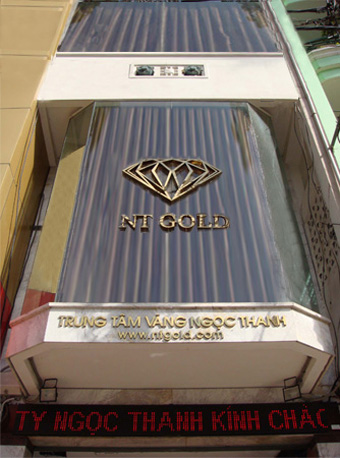Hiromi Komatsu is hitting Tokyo department stores in search of Christmas presents this year for the first time in her life, as she prepares for a rare visit of family members for the holiday season.
“It’s usually not a big deal if we’re not together but this year I must be with them,” said Komatsu, 40, whose parents live in Rikuzentakata, a northeastern coastal town devastated by the March 11 earthquake and tsunami. “I’m spending a bit more than usual even though I’m between jobs now to give back to my friends” who gave support after the quake.
Komatsu isn’t spending in isolation. At J Front Retailing Co. (3086), the nation’s second-largest department-store operator, Christmas cake sales are up 10 percent from a year ago. Demand for platinum used in wedding bands and engagement rings has risen. Sales at Isetan Mitsukoshi Holdings Ltd. (3099)’s flagship store in central Tokyo jumped 6.4 percent in November, the third straight monthly increase.
The opening of wallets during Japan’s busiest shopping month could give the world’s third-largest economy a boost at a time when Europe’s debt crisis and a yen near postwar highs against the dollar endanger a rebound from a temblor that left more than 19,000 people dead or missing.
End-of-year largess is making retailers’ shares more attractive, according to Kumio Tomonaga, an analyst at Citigroup Inc.Department-store sales fell 0.5 percent in October from a year earlier, the smallest drop since July. November figures are due today.
Renewing Ties
“An increase in consumption to reinforce relationships spurred by the March 11 disaster should keep department-store sales firm in December and beyond,” Tomonaga, ranked as a top large retail analyst for the past decade by the weekly Nikkei Veritas newspaper, wrote in a report on Dec. 1. “In our view, department-store share prices have the greatest upside potential of any of the retail subsectors.”
The Topix Retail Trade (TPRETL) Index has risen 2.3 percent in the past six months, outperforming the broader measure’s 10.9 percent decline. Retail sales rose a more-than-estimated 1.9 percent in October from a year earlier, the biggest jump since August 2010. Nomura Securities Co. and Norinchukin Research Institute have raised their consumer spending forecasts.
“I wouldn’t say the spending is keeping the recovery intact, but it’s definitely providing support for an economy that faces growing downside risks from overseas,” said Hiroyuki Fujiwara, a senior analyst at Nippon Research Institute in Tokyo, which specializes in consumer and corporate behavior and conducts research for the government.
Thank You Gifts
For Komatsu, the gift-giving season has meant buying as many desserts, snacks and as much green tea as she’s able to carry while strolling the shops and stores of Ginza, Tokyo’s main shopping district. She’ll use the purchases to thank friends living outside Japan who sent care packages and supportive letters in the aftermath of the March quake.
“Orders for Christmas cake and traditional New Year food typically get a boost when consumers plan to spend time with family,” Makoto Kawamura, a Tokyo-based spokesman for retailer J Front, said in an interview. “The earthquake may have convinced households it’s better to spend rather than save.”
December shopping accounts for 10 percent of annual retail sales in Japan, government data show. Unlike in the U.S. where retailers count on Christmas to propel end-of-year shopping, Japanese buying typically revolves around New Year’s and traditional foods used to celebrate the period.
Boost to Spending
High on many shopping lists is osechi, a collection of foods believed to be auspicious. The dishes include sweetened black beans thought to contribute to a fulfilling life and grilled yellowtail to ensure success. Stacked in three-story boxes, osechi sells for several hundred dollars. Department store operator Takashimaya Co. (8233) has already sold all 300 of its 26,250 yen ($338) boxes targeted at families.
“The earthquake reaffirmed that our daily lives are supported by ties with others,” said Makoto Kameoka, author of ‘Modern Japanese’s Ties’ who has studied consumer behavior for 30 years. “There are a lot of chances for businesses if they succeed to come up with a product that gives friends and families a chance to spend time with one another.”
Mitsuo Wakui, a 68-year-old resident of Fukushima, is this year sending canned crab to friends and relatives, the first time he’s selected the delicacy as a gift in 15 years.
“I feel good about sending them,” Wakui said while choosing the crab, which sells for as much as 5,000 yen ($64) each at a department store in Fukushima. “This is how I can show my gratitude after so many people sent me food and water in the wake of the earthquake and nuclear disaster.”
The quake also spurred marriages and is boosting demand for platinum, London-based metal processor Johnson Matthey Plc wrote in a Nov. 15 report. Average spending on weddings rose 6 percent to 3.6 million yen this year in Tokyo and four surrounding prefectures, according to Tokyo-based Recruit Co.
“People feel strongly about ties to their loved ones and really want to enjoy their time with them,” said Ginza shopper Komatsu, who lost her aunt in the disaster. “That’s why they’re spending.”
To contact the reporter on this story: Toru Fujioka in Tokyo at tfujioka1@bloomberg.net
To contact the editor responsible for this story: Paul Panckhurst at ppanckhurst@bloomberg.net
| TIME | |||||
|---|---|---|---|---|---|
| Sydney | Tokyo | Ha Noi | HongKong | LonDon | NewYork |
| Prices By NTGOLD | ||
|---|---|---|
| We Sell | We Buy | |
| 37.5g ABC Luong Bar | ||
| 9,575.70 | 8,565.70 | |
| 1oz ABC Bullion Cast Bar | ||
| 7,990.50 | 7,100.50 | |
| 100g ABC Bullion Bar | ||
| 25,438.50 | 22,573.50 | |
| 1kg ABC Bullion Silver | ||
| 5,062.90 | 3,512.90 | |
Powered by: Ngoc Thanh NTGold
- Online: 75
- Today: 1879
- Total: 7135922














